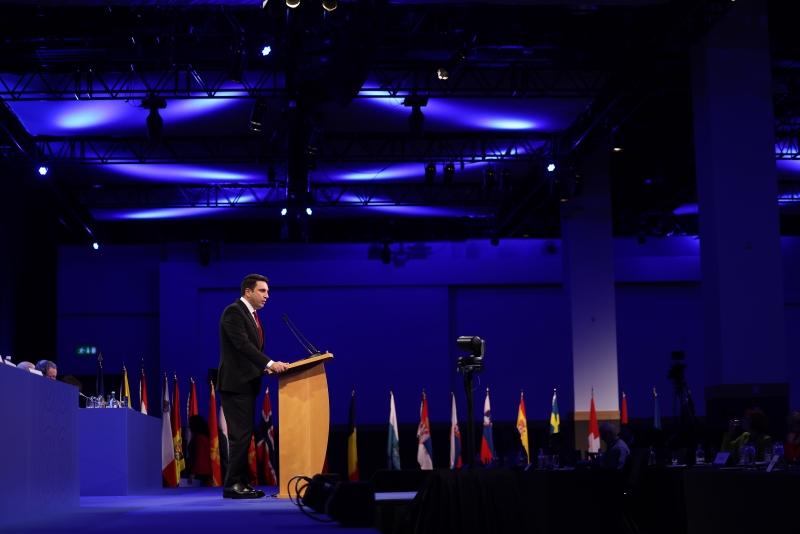
We hope that the meeting of the leaders of Armenia and Azerbaijan on October 5 will be a step forward. Alain Simonyan
The delegation led by RA NA Speaker Alen Simonyan is participating in the European Conference of the Presidents of the Parliaments of the Council of Europe in Dublin.
As reported by the National Assembly, speakers of the parliaments of 46 member states of the Council of Europe, parliamentarians of observer countries, as well as leaders of inter-parliamentary organizations are participating in the conference.
According to Simonyan, the actions of the international community have created a sense of impunity in Azerbaijan, aggravating the situation in the region.
"Azerbaijan's actions are not limited to Nagorno-Karabakh, but extend to the sovereign territories of Armenia, a part of which remains under the control of Azerbaijan. Azerbaijan's approach is to force its preferred decisions on Armenia. For more than three years now, Azerbaijan has refused to return Armenian prisoners of war and other civilians, despite the decision of the European Court of Human Rights. Moreover, after the court's decision, Azerbaijan kidnapped 2 Armenian servicemen from the territory of Armenia, as a result of which the total number of confirmed prisoners of war reached 35.
Dear colleagues, I was not surprised that our Turkish partner approved the use of military force against the Armenians of Nagorno-Karabakh.
I am not surprised that Turkey, Azerbaijan and Russia often use the same rhetoric. What amazes me is that they do this here in an organization founded for the protection of human rights.
Colleagues, Azerbaijan has constantly attacked Armenia in various ways. In his own words, President Aliyev thought about how many impulses Armenia needed to understand the essence of the case. "The border operations of 2021 and 2022 were not enough," he thought. He also noted that Armenia does not seem to have understood the closure of the Lachine Corridor about 10 months ago, the first phase of its campaign of ethnic cleansing. On September 19, the next part began.
Despite the presence of Russian peacekeepers, Azerbaijan unleashed another large-scale military attack against the Armenians of Nagorno-Karabakh. Hundreds of people were injured and killed, and tens of thousands were forcibly displaced. They remain outside without food, medical care or other means of survival. While I am talking about the ethnic cleansing program of Azerbaijan, the mass emigration of Armenians from Nagorno Karabakh continues.
It is unbelievable that today, in the 21st century, such events are taking place in different corners of the world. With its actions that nullify international efforts to establish peace and stability in the South Caucasus, Azerbaijan has cast doubt on its suitability to be a member of the Council of Europe. The Council of Europe should actively participate in the protection of human rights in the most complex conflicts.
Within the borders of the geographical coverage of the Council of Europe, including Nagorno-Karabakh, the protection of the rights of every human being should be a priority for the Council of Europe. Armenia remains committed to achieving just and lasting peace in the region.
We hope that the meeting of the leaders of Armenia, Azerbaijan, Germany, France and the EU within the framework of the third summit of the European Political Community to be held on October 5 in Granada, Spain will be a step forward. Armenia strongly supports the peace approach agreed by Prime Minister Pashinyan and President Aliyev and formulated by the President of the European Council Charles Michel.
We welcome future transport agreements that respect the principles of sovereignty, competence and reciprocity. We call on the international community, including the Council of Europe, to support this process. Today, some countries are waging a hybrid war against Armenia.
The goals are twofold: to overthrow the democratically elected government and to discredit the concept of "representative democracy". Democracy, rule of law, respect for human rights and peaceful coexistence are the pillars on which humanity must live in peace and harmony. It is fair not only within democratic states individually, but also between them collectively. Together, and perhaps only together, we can overcome the challenges of our time. The center should remain standing," he said.
Add new comment